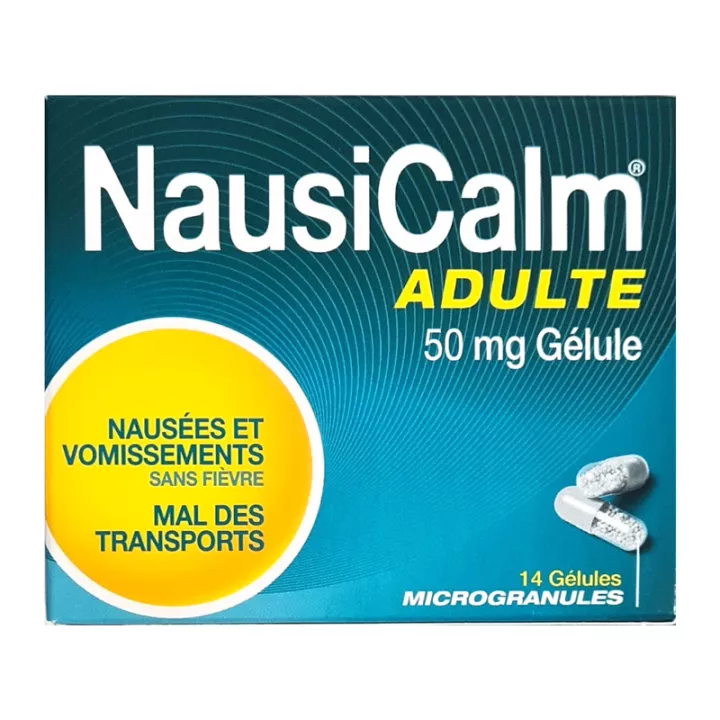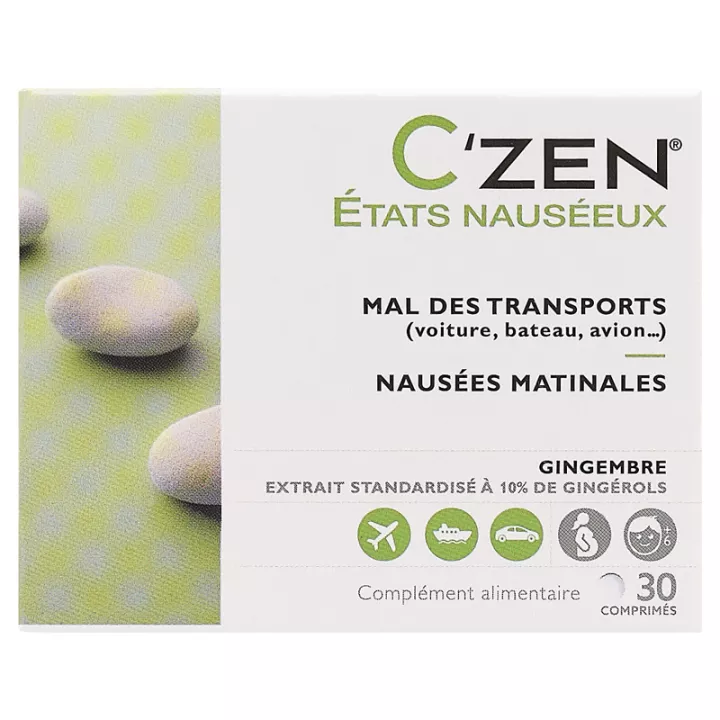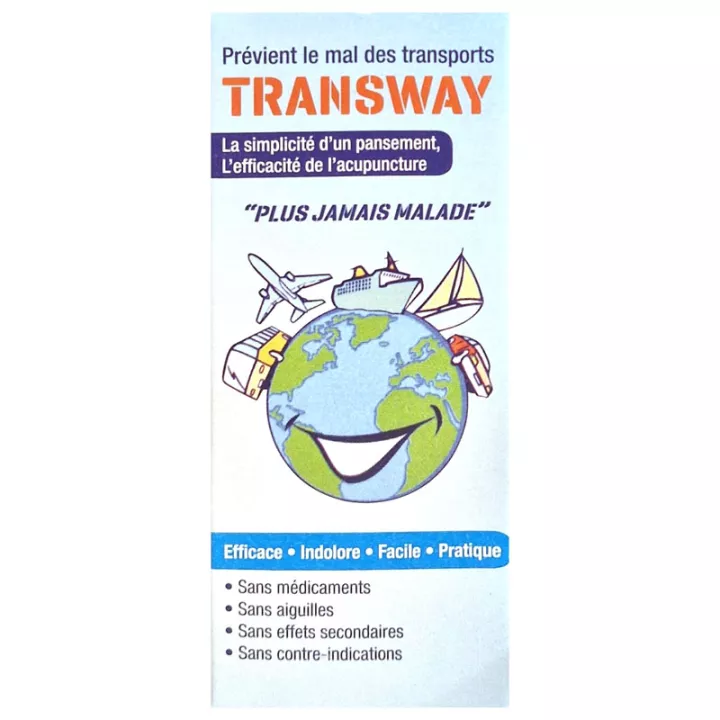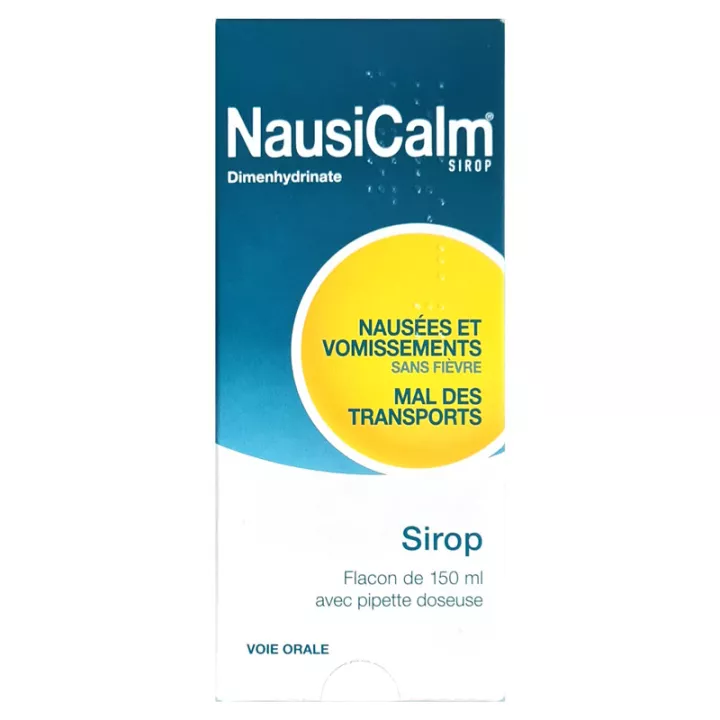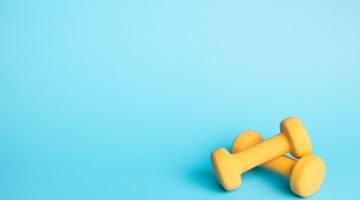NOTICE
ANSM - Updated: 02/11/2017
Name of the drug
MERCALM, scored film-coated tablet
Dimenhydrinate / Caffeine
framed
Read all of this leaflet carefully before you start taking this medicine because it contains important information for you.
You should always take this medicine exactly as described in this leaflet or by your doctor, pharmacist or nurse.
· Keep this leaflet. You might need to read it again.
· Talk to your pharmacist for any advice or information.
· If you get any side effects, talk to your doctor, pharmacist or nurse. This also applies to any undesirable effect that is not mentioned in this leaflet. See section 4.
· You should talk to your doctor if you do not feel better or feel worse after taking it .
What does this booklet contain ?
1. What is MERCALM, film-coated tablet and where is it used?
2. What information do you need to know before taking MERCALM film-coated tablets?
3. How to take MERCALM, film-coated tablet scored?
4. What are the possible side effects?
5. How to store MERCALM, film-coated tablet scored?
6. Contents of the package and other information.
1. WHAT IS MERCALM, SEPARATE film-coated tablet AND WHAT IT IS USED FOR?
Pharmacotherapeutic group: ANTINAUPATHIC (anti-seasickness) (N: Central nervous system)
This medicine contains an antihistamine, dimenhydrinate and caffeine.
It is indicated in the prevention and treatment of motion sickness, in adults and children over 6 years.
You should talk to your doctor if you do not feel better or feel worse after taking it.
2. WHAT YOU SHOULD KNOW BEFORE TAKING MERCALM, scored film-coated tablet?
Do not take MERCALM film-coated tablets in the following cases:
· Child under 6 years old due to caffeine
· Some forms of glaucoma (increased pressure in the eye),
· Difficulty to urinate of prostatic origin or other,
· Allergy known to antihistamines.
This medicine SHOULD NOT BE USED unless directed by your doctor, in case of breastfeeding and in case of treatment with enoxacin.
· if you are allergic to Dimenhydrinate or caffeine or to any of the other ingredients of this medicine, listed in section 6.
Warnings and precautions
If you have been told by your doctor that you have an intolerance to some sugars, contact your doctor before taking this medicine.
This medicine contains caffeine (10 mg per tablet) which can cause excitement, insomnia and palpitations, especially in children ( see side effects ). Avoid association with certain foods that also contain caffeine (cola drink, coffee, tea, chocolate). |
This medicine contains lactose. Its use is not recommended in patients with lactose intolerance (rare hereditary disease).
As a precaution, do not use this medicine for bronchial asthma.
In case of long-term liver or kidney disease , CONSULT YOUR DOCTOR so that he can adjust the dosage.
Taking this medicine requires a MEDICAL ADVICE in the elderly :
· predisposed to constipation, dizziness or drowsiness;
· with prostate disorders.
PREVENT YOUR DOCTOR before taking this antihistamine.
Due to the possibility of insomnia related to caffeine, it is best to avoid taking this medicine after 16 hours.
The occurrence of signs or symptoms suggestive of abuse or dependence on dimenhydrinate should be carefully monitored.
Talk to your doctor or pharmacist or nurse before taking MERCALM, scored film-coated tablet .
Children and adolescents
Not applicable.
Other medicines and MERCALM, scored film-coated tablet
Tell your doctor or pharmacist if you are taking, have recently taken or might take any other medicines.
TO AVOID POSSIBLE INTERACTIONS BETWEEN SEVERAL MEDICINAL PRODUCTS, ESPECIALLY ENoxacin, YOU MUST SYSTEMALLY REPORT ANY OTHER TREATMENT IN PROGRESS TO YOUR DOCTOR OR PHARMACIST .
This medicine contains an antihistamine, dimenhydrinate and caffeine. Other medicines contain it. Do not combine them, so as not to exceed the maximum recommended dose ( see Dosage ). |
MERCALM, scored film-coated tablet with food, drinks and alcohol
This medication may cause drowsiness increased by alcohol : abstain from alcoholic beverages or drugs containing alcohol during the course of treatment.
Pregnancy and, breastfeeding and fertility
G rossesse
If you are pregnant or breast-feeding, think you may be pregnant or are planning to have a baby, ask your doctor or pharmacist for advice before taking this medicine.
In late pregnancy, abuse of this drug may cause adverse effects in the newborn. Therefore, always seek the advice of your doctor before using it and in no case exceed the recommended dosage.
Ask your doctor or pharmacist for advice before taking any medicine .
feeding
This drug passes into breast milk, its intake is not recommended when breastfeeding.
Ask your doctor or pharmacist for advice before taking any medicine.
Sport
The attention of the athletes is drawn to the fact that caffeine can induce a positive reaction of the tests performed during doping controls.
Driving and using machines
The drowsiness and decreased alertness associated with the use of this medication may be significant and render dangerous the operation of vehicles and the use of machinery.
This phenomenon is accentuated by the intake of alcoholic beverages or drugs containing alcohol, which are therefore to be avoided .
MERCALM, film-coated tablet contains breakable
List of excipients with known effect: Lactose.
3. HOW TO TAKE MERCALM, film-coated tablet scored?
Always take this medicine exactly as described in this leaflet or as directed by your doctor or pharmacist. Check with your doctor or pharmacist if in doubt.
The recommended dose is:
· Adults and children over 15 years : 1 to 2 tablets per dose, not to exceed 6 tablets per day.
· Child from 6 to 15 years : 1/2 to 1 tablet per dose, not to exceed 3 tablets per day.
Oral way. Swallow the tablets with a little water ½ hour before departure. If disorders persist, replenish within an interval of more than 6 hours. Do not exceed 3 taken per day.
Use in children and adolescents
RESERVED FOR ADULTS AND CHILDREN OVER 6 YEARS OLD.
In children, in order to facilitate the setting, it is possible to crush the ½ or the tablet in a glass of sweet water.
If you take more MERCALM, scored film-coated tablet than you should:
In case of massive absorption, discomfort or disturbances of consciousness, PREVENT IMMEDIATELY A DOCTOR.
If you forget to take MERCALM, scored film-coated tablet
Not applicable .
If you stop taking MERCALM, scored film-coated tablet
Not applicable.
If you have any further questions about the use of this medicine, ask your doctor, pharmacist or nurse for more information.
4. WHAT ARE THE POSSIBLE SIDE EFFECTS?
Like all medicines, this medicine can cause side effects, although not everybody gets them.
Description of adverse effects
Some side effects require IMMEDIATELY STOPPING THE TREATMENT AND TELLING A PHYSICIAN.
· Allergic reactions:
o rash type (erythema, eczema, purpura, urticaria);
o Quincke edema (urticaria with sudden swelling of the face and neck that may cause a respiratory disorder);
o anaphylactic shock.
· Significant decrease in white blood cells in the blood that may be manifested by the onset or recrudescence of a fever with or without signs of infection.
· Abnormal reduction of platelets in the blood that may result in nosebleeds or gums .
Other side effects may occur, such as:
· Drowsiness, decreased alertness.
· Memory or concentration disorder, dizziness (more common in the elderly), balance disorders.
· Motor incoordination, tremors.
· Confusion, hallucinations.
· Dry mouth , visual disturbances, urine retention, constipation, palpitations, low blood pressure.
· Possibility of excitement, insomnia and palpitations.
· Very rare cases of abnormal movements of the head and neck in children.
· Cases of abuse and drug dependence with dimenhydrinate have been reported.
Additional side effects in children and adolescents
Not specified
Reporting of side effects
If you get any side effects, talk to your doctor or pharmacist or nurse. This also applies to any undesirable effect that is not mentioned in this leaflet. You can also report side effects directly via the national reporting system: National Agency for the Safety of Medicines and Health Products (ANSM) and the network of Regional Pharmacovigilance Centers - Website: www.ansm.sante.fr
By reporting side effects, you can help provide more information about the safety of the medicine.
5. HOW TO STORE MERCALM, scored film-coated tablets?
Keep this medicine out of the sight and reach of children.
Do not use this medicine after the expiry date which is stated on the carton. The expiry date refers to the first day of this month.
Do not use this medicine if you notice any visible signs of deterioration.
Do not dispose of any medication in the sewage system or in the household garbage. Ask your pharmacist to eliminate medications that you no longer use. These measures will help protect the environment.
6. CONTENTS OF PACKAGING AND OTHER INFORMATION
What MERCALM film-splitting tablets contain
· The active substances are:
Dimenhydrinate ................................................. .................................................. ........... 50 mg
Caffeine ................................................. .................................................. ........ ..................... 10 mg
For a scored film-coated tablet
· The other components are:
Lactose monohydrate, microcrystalline cellulose, modified corn starch, anhydrous colloidal silica, magnesium stearate.
Film coating: hypromellose 15 m Pa.s, lactose monohydrate, macrogol 4000, titanium dioxide (E171), macrogol 6000.
What MERCALM film-coated tablets breakable and contents of the pack
This medicine is in the form of a film-coated tablet. Box of 15.
Marketing Authorization Holder
MELISANA PHARMA
8 AVENUE MINIMES
94300 VINCENNES
Operator of the marketing authorization
HEPATOUM LABORATORY
1, RUE DU PONT
03270 SAINT-YORRE
Maker
FARMEA
10, BOUCHE THOMAS STREET
ZAC D'ORGEMONT
49007 ANGERS CEDEX 01
Or
MELISANA PHARMA
1 RUE DU PONT
03270 SAINT-YORRE
Names of the drug in the member states of the European Economic Area
Not applicable.
The last date this leaflet was revised is:
[to be completed later by the holder]
Other
Detailed information on this medicine is available on the ANSM website (France).




